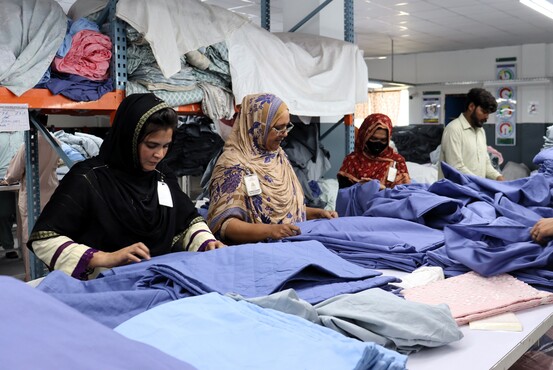Women in Textiles: How Humera Shehzad Rose Above Adversity

Humera Shehzad grew up in a small village on the outskirts of Faisalabad. After she got married, she moved to Peshawar and worked as a cook. Her life took a dramatic turn when she and her family had to return to Faisalabad due to a land dispute.
Their move was marked by multiple crises, including her husband's deteriorating health and the responsibility of feeding six children without a source of income.
"When we came back to Faisalabad, both me and my husband were jobless. On the recommendation of a family relative, I started working in the textile industry,” Humera explains.
Empowerment through Mentorship and Education
"Starting in the textile industry was far from easy. Women often face uncomfortable stares from male coworkers, which can be very intimidating. There's also a noticeable lack of skills among women entering the field, making it harder to compete. The physical setup, like the folding tables, is often designed with men in mind, making it tough for women to adapt," notes Humera.
Although Humera's initial days were rough, she found strength in the guidance of an experienced female coworker who became her mentor. A transformative moment in Humera's journey was her enrolment in training sessions provided with the support of the German Development Corporation. These sessions were designed to enhance the skills of female workers and improve occupational health and safety in the textile industry. GIZ’s commitment to improving socio-economic conditions and fostering safe, inclusive working environments for all genders played a crucial role in Humera’s development.
Diversity and Sustainable Economic Growth
Humera is passionate about supporting other women in the industry and giving back to the community.
"Supporting each other is crucial. By sharing knowledge and standing together, we create a more empowering environment, which ultimately contributes to our collective success" says Humera.
Humera’s story illustrates how international support for measures like diversity, inclusion, and gender equality paves the way for increased productivity in Pakistan’s textile industry, thereby enhancing the economic outlook of the nation. After all, these measures allow by fostering an inclusive environment, the textile industry can harness the full potential of its workforce, leading to sustainable economic growth and a better quality of life for all.